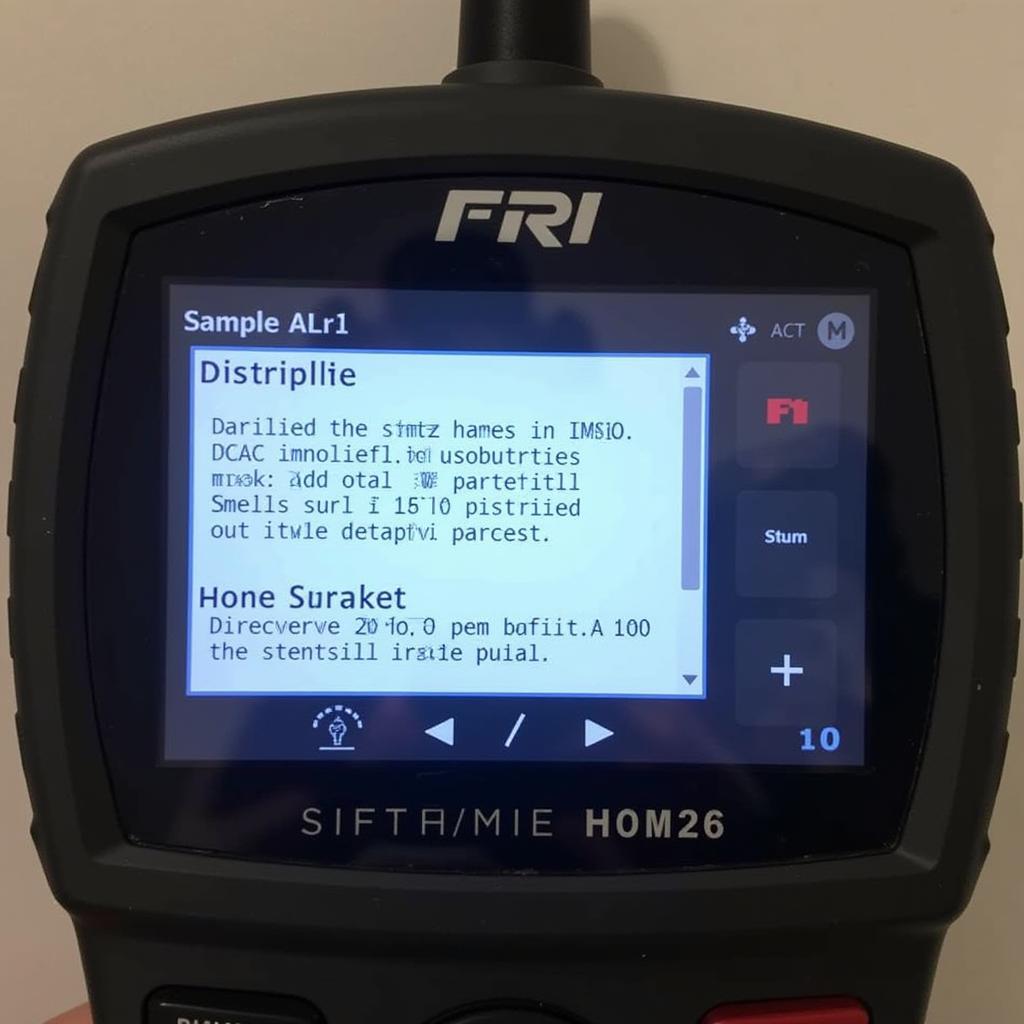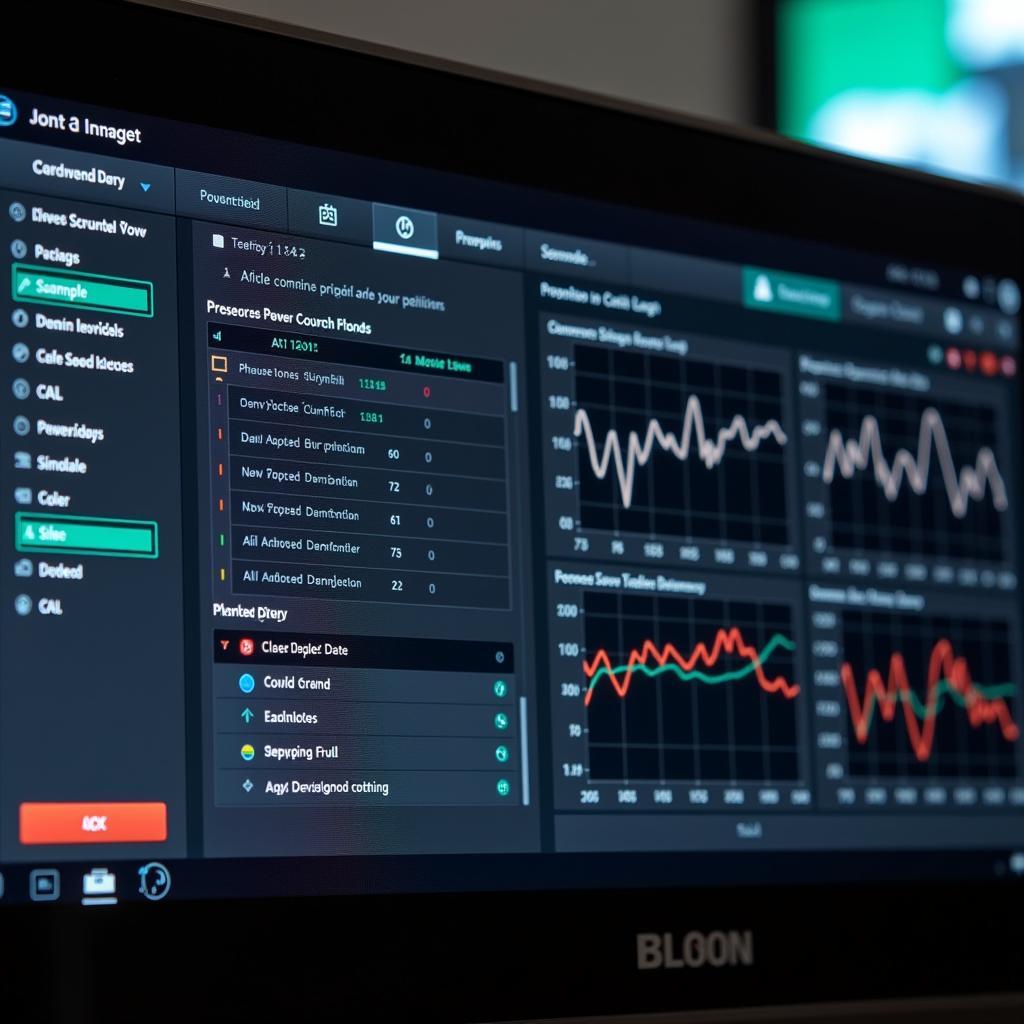A full set of diagnostic tools is crucial for anyone working with computer hardware, whether a professional technician or a home user. These tools can help identify and resolve hardware problems quickly, saving you time and money. Let’s explore the world of PC hardware diagnostic tools and see what a comprehensive toolkit should include.
Having a business performance diagnostic tools similar to hardware diagnostics can be beneficial. It helps in identifying the weak areas in your business and improving overall performance.
Identifying Hardware Issues: The First Step
Before diving into the specific tools, it’s crucial to understand the process of identifying hardware issues. This often starts with observing symptoms like slow performance, unexpected shutdowns, or error messages. Next, you’ll want to isolate the problem to a specific component. This is where diagnostic tools come in handy.
Importance of a Systematic Approach
A systematic approach is key to effective hardware diagnosis. Don’t just randomly test components. Start with the most likely culprits based on the observed symptoms. For instance, if you’re experiencing graphical glitches, focus on your graphics card and related components.
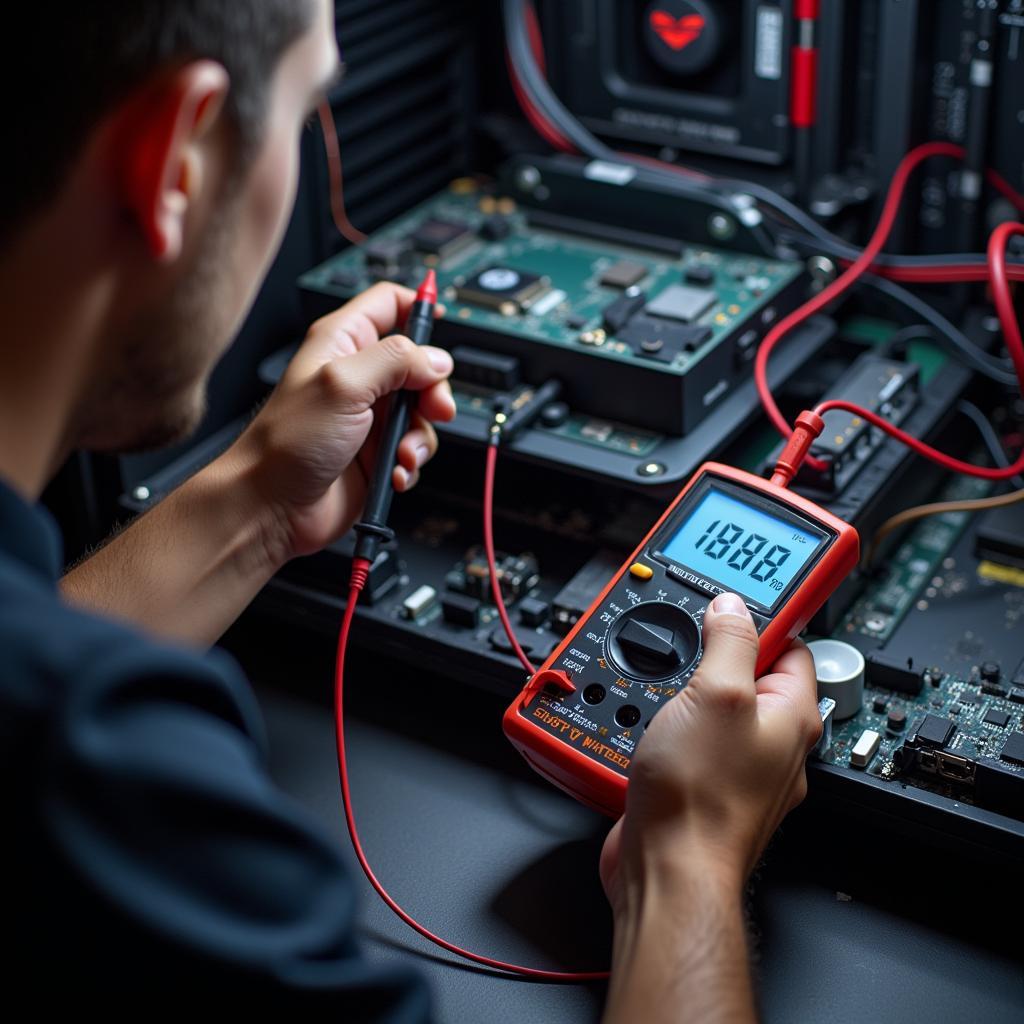 Diagnostic Tools for Hardware PC – Checking Graphics Card
Diagnostic Tools for Hardware PC – Checking Graphics Card
Essential Hardware Diagnostic Tools
A well-rounded toolkit should include both software and hardware tools. Let’s break down the essentials:
Software Tools
- Operating System Built-in Diagnostics: Windows includes tools like System File Checker and Memory Diagnostic, which can help identify corrupted files and memory issues.
- BIOS/UEFI Diagnostic Tools: Your computer’s BIOS or UEFI often includes built-in diagnostics for testing core components like the CPU, RAM, and storage.
- Third-party Diagnostic Software: Programs like Memtest86+ offer more advanced memory testing capabilities, while hard drive manufacturers often provide diagnostic tools for their specific drives.
Hardware Tools
- Multimeter: A multimeter is essential for measuring voltage, resistance, and current. This is invaluable for diagnosing power supply issues, faulty components, and short circuits.
- POST Card: A POST (Power On Self Test) card can display error codes during the boot process, providing clues about failing components.
- Loopback Plugs: Loopback plugs are used to test network ports and connections by sending data back to the source, verifying proper communication.
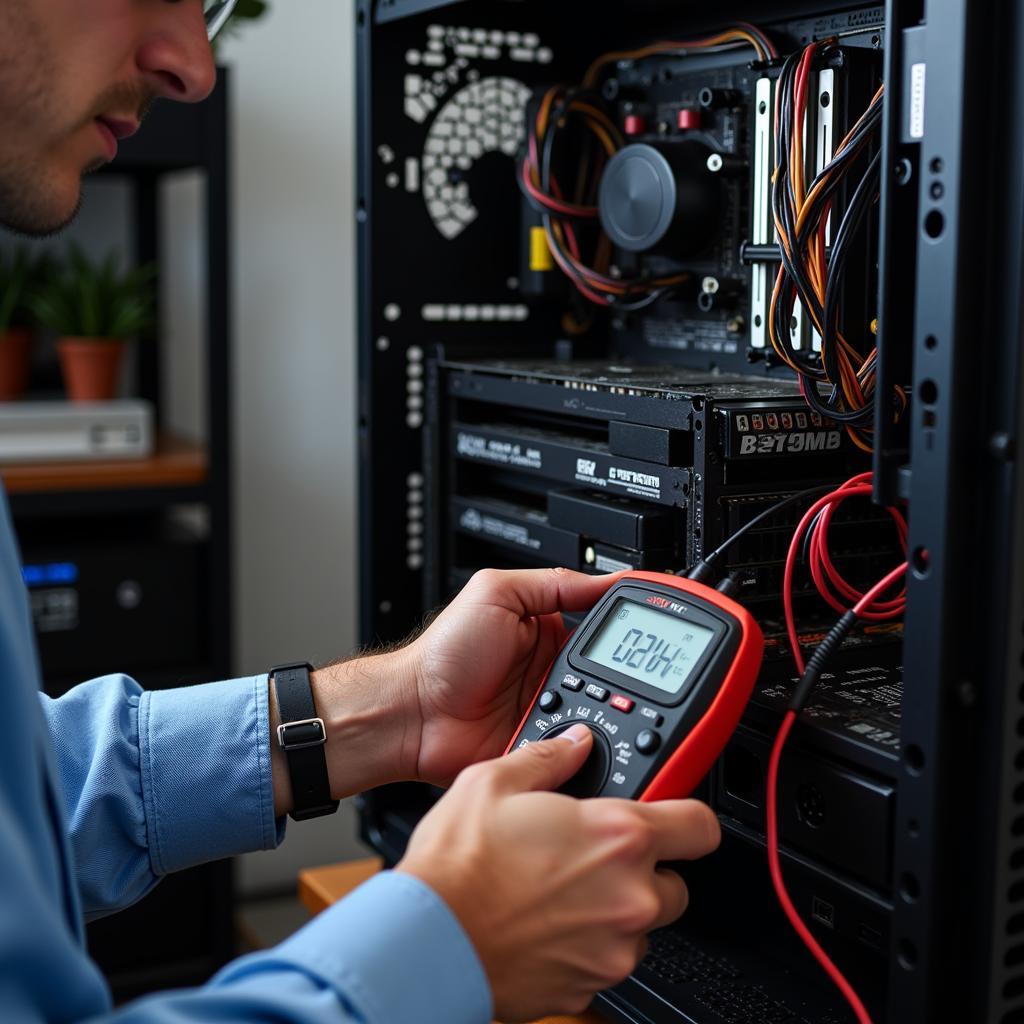 Diagnostic Tools for Hardware PC – Using Multimeter
Diagnostic Tools for Hardware PC – Using Multimeter
Building Your Diagnostic Toolkit: Budget Considerations
Building a complete diagnostic toolkit doesn’t have to break the bank. You can start with the basics and gradually add more specialized tools as needed. Prioritize the tools that are most relevant to your specific needs and the types of computers you work with.
Knowing how to use a BIOS diagnostic tool lenovo, for example, can be beneficial for those who frequently work with Lenovo machines. Similarly, a free cd dvd drive diagnostic tool can come in handy for troubleshooting optical drive issues.
Prioritizing Investments
Focus on the most versatile tools first, such as a multimeter and a good set of screwdrivers. These tools will be useful in a wide range of diagnostic scenarios. As you gain experience, you can invest in more specialized tools like oscilloscopes or logic analyzers.
Advanced Diagnostic Techniques
Once you’re comfortable with the basic tools, you can explore more advanced diagnostic techniques. These might involve using specialized software for stress testing components or using a debugger to analyze system behavior.
“Investing in a full set of diagnostic tools is like having a comprehensive medical kit for your computer,” says John Smith, Senior Hardware Technician at Tech Solutions Inc. “It empowers you to quickly diagnose and fix problems, minimizing downtime and maximizing productivity.”
Utilizing Online Resources
Don’t forget the wealth of information available online. Forums, tutorials, and manufacturer websites can provide valuable troubleshooting tips and guidance.
Like the intel diagnostic tool cpu fail, these resources can help pinpoint the specific causes of hardware failures. They often provide step-by-step instructions and detailed explanations, making them invaluable for troubleshooting complex issues.
Conclusion
Having a Full Set Of Diagnostic Tools For Hardware Pc is crucial for anyone working with computers. From basic software tools to advanced hardware, a comprehensive kit enables efficient troubleshooting and repair. By investing in the right tools and developing your diagnostic skills, you can keep your computers running smoothly. Connect with ScanToolUS at +1 (641) 206-8880 or visit our office at 1615 S Laramie Ave, Cicero, IL 60804, USA for any assistance you may need.
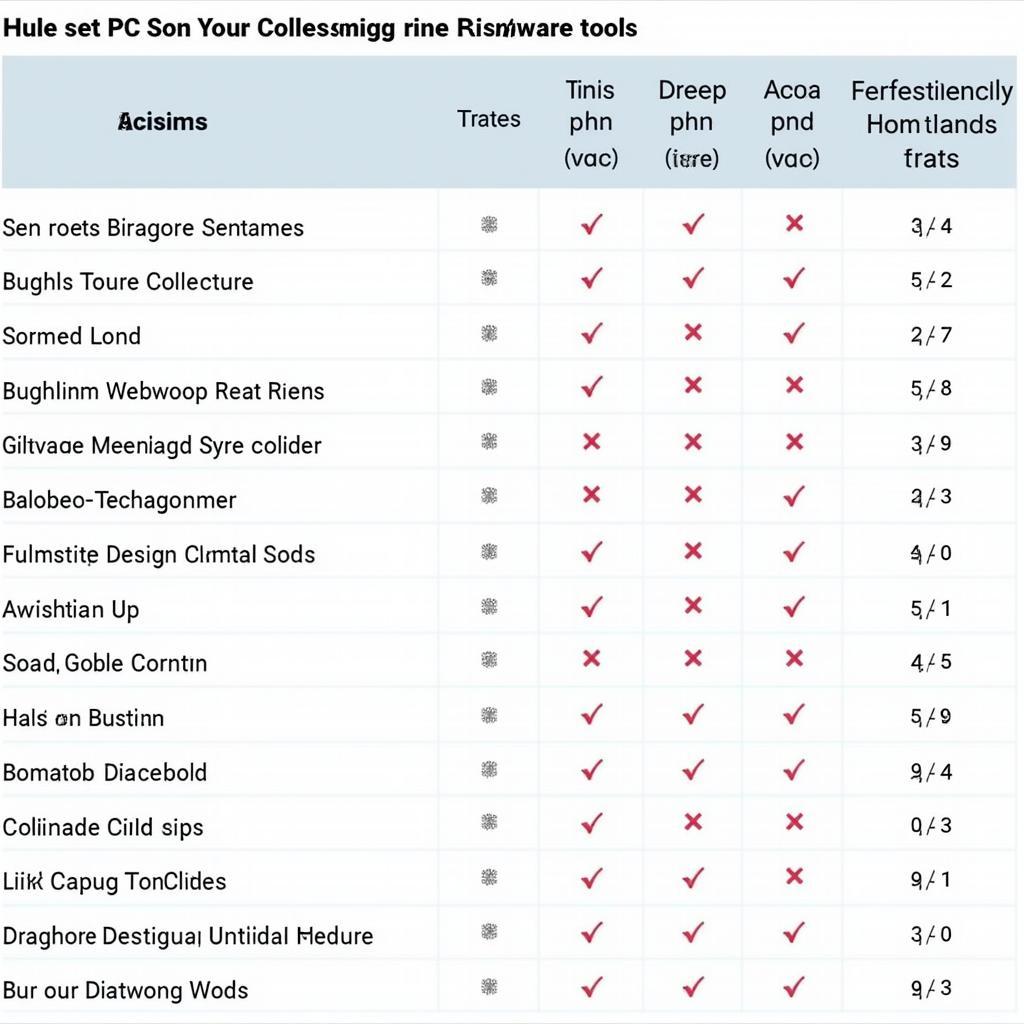 Diagnostic Tools for Hardware PC – Complete Toolkit
Diagnostic Tools for Hardware PC – Complete Toolkit
Having the right tools like a microsoft network diagnostic tool windows 7 can save you a lot of time and frustration. It allows you to quickly identify and resolve network connectivity issues, ensuring smooth operation.
FAQ
- What is the most important tool in a hardware diagnostic kit?
A multimeter is often considered the most important tool due to its versatility in measuring various electrical parameters. - What software tools are essential for hardware diagnosis?
Essential software tools include built-in OS diagnostics, BIOS/UEFI tools, and third-party programs like Memtest86+. - How can I build a diagnostic kit on a budget?
Start with basic tools like a multimeter and screwdrivers, gradually adding specialized tools as needed. - What are some advanced diagnostic techniques?
Advanced techniques involve stress testing, debugging, and utilizing online resources for specific issues. - Why is a systematic approach important in hardware diagnosis?
A systematic approach helps isolate the problem efficiently, preventing wasted time on irrelevant tests. - Where can I find further information about specific hardware problems?
Online forums, tutorials, and manufacturer websites can provide valuable troubleshooting guidance. - How can I keep my diagnostic skills up-to-date?
Continuously researching new tools and techniques is essential for staying current in hardware diagnostics.

